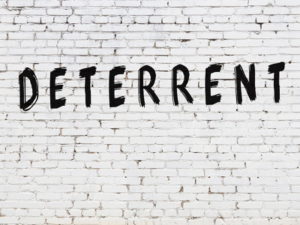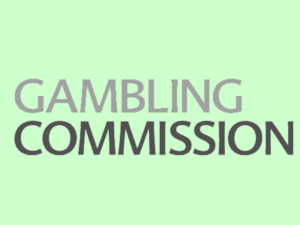Are Gambling Fines a Sufficient Deterrent?
 In the past few years, gambling fines have become bigger and more frequent in the UK betting scene. These have seen the UK Gambling Commission issue penalties to operators who are not following the rules of their gambling licences properly. Any areas where they have failed to conduct themselves appropriately have been flagged up by the Commission and a fine that they deem to be adequate has been handed out. Yet it seems as though in more recent times, the sums of the fines handed out to these gambling brands have significantly increased.
In the past few years, gambling fines have become bigger and more frequent in the UK betting scene. These have seen the UK Gambling Commission issue penalties to operators who are not following the rules of their gambling licences properly. Any areas where they have failed to conduct themselves appropriately have been flagged up by the Commission and a fine that they deem to be adequate has been handed out. Yet it seems as though in more recent times, the sums of the fines handed out to these gambling brands have significantly increased.
The issue is that the operators don’t seem to be overly upset about the Commission penalising them in such a way. Despite the increase in the amounts of the fines they have to pay, the operators have continued providing their services and, in many cases, repeat fines to the same brands have been witnessed. Can it actually be said that these gambling fines operate as a sufficient deterrent to the companies receiving them? After all, the fact that they sometimes go into the millions of pounds brackets today would have an effect on most companies. Perhaps the gambling scene is very different in this respect, though?
Why Fines May Not Be Having The Desired Impact
 If you’ve been keeping informed on the goings on of the gambling world, then you may already know that so many companies have either merged or been bought out by a bigger group. This seems to have been taking place a lot recently, with highly popular brands such as Netent and Red Tiger being taken over by other popular companies. Evolution is, of course, now the owner of both of those two software development brands, along with a few others. The deal that saw Evolution purchase Netent cost the former 19.6 billion Swedish krona (£1.5 billion) to complete.
If you’ve been keeping informed on the goings on of the gambling world, then you may already know that so many companies have either merged or been bought out by a bigger group. This seems to have been taking place a lot recently, with highly popular brands such as Netent and Red Tiger being taken over by other popular companies. Evolution is, of course, now the owner of both of those two software development brands, along with a few others. The deal that saw Evolution purchase Netent cost the former 19.6 billion Swedish krona (£1.5 billion) to complete.
Other companies are guilty of completing similar transactions in the past two or three years. The Stars Group merged with Flutter Entertainment in 2020 for $12.2 billion (£9 billion), FanDuel was acquired by Paddy Power Betfair in 2018 in a deal that saw the latter throw in existing US assets worth $612 million (£452.3 million) along with an extra $158 million (£116.7 million) in cash to take its 61% stake in the combined business, and William Hill was recently purchased by Caesars in the U.S. and 888 for its UK and European-facing operations in big-money purchases.
Considering that these huge deals have been taking place, with masses of money being splashed about the place in the process, can it really be said that a fine equating to £3.8 million (as was handed out to Genesis Global by the Commission recently) will have that much of an affect on these multi-billion pound mammoth companies?
Of course, it’s not always the larger companies that are being penalised by the Gambling Commission. Yet if the regulatory body is to treat all brands the same, then the smaller ones will feel the hit of a fine a lot more than the larger groups. That’s only to be expected. But it seems as though the penalties aren’t doing much to severely punish the companies providing gambling services to the UK. Especially considering some of them have been fined on multiple occasions for failure to adhere to the licence rules.
What Happens To The Money From UKGC Fines?
 When these huge fines are handed out to gambling operators, what happens to the money? Where does the Gambling Commission direct it to? Well, the answer to this is that it usually depends upon what reason the company was fined in the first place. This will frequently determine the location that the money goes to.
When these huge fines are handed out to gambling operators, what happens to the money? Where does the Gambling Commission direct it to? Well, the answer to this is that it usually depends upon what reason the company was fined in the first place. This will frequently determine the location that the money goes to.
One of the primary routes for this money to go to is the victims of crimes in the United Kingdom. When it comes to problem gamblers, it is often the case that these people will do anything to involve themselves in betting and playing their favourite games. This can lead to them turning to crime in order to secure the money to do so, such as stealing from their own family or from a company that they are employed by. Such was the case for a General Practitioner in Portsmouth last year, who embezzled over £1 million from the Primary Care Alliance Ltd. group he had founded across a 41-day period. Rumi Chhapia then utilised the money on gambling, believing that it had the ability to get him “out of turmoil” regarding a combination of his addiction, the COVID-19 pandemic and a high tax bill.
Often, when it comes to these sorts of situations, any penalty money from gambling companies will be funnelled towards the victims of the embezzlement or family theft, for example. Betting companies should be informed of where the money that a player is gambling with has come from. When they don’t gather this knowledge, that is when things become quite the problem.
This can lead to the Gambling Commission issuing fines to companies which have willingly accepted deposits of vast amounts without having any idea at all where it is coming from. Those fines can then be utilised as a way of paying back some of the money to the people who were the victims on the bad end of fraud or embezzlement, for example. This way, it ensures they are not out of pocket themselves.
Back in 2019, the Gamesys brand was forced to pay £1.2 million for failing to prevent gambling harm and breaching money laundering regulations at the same time. During police investigations that led to this ruling by the Commission, it was discovered that three gamblers had spent stolen money with the gambling business. As part of that settlement, £460,472 of the money was returned to the victims of the thefts, while £690,000 was paid in lieu of a financial penalty.
Another major aim of the Gambling Commission is to ensure that there is sufficient help available for those who are suffering with gambling addiction problems. Social responsibility is a necessary part of a company holding a licence from the Commission in the first place, and while it is never clear exactly what the schemes are that have been put in place to assist such people, money from penalties is often used to fund them. Charities like GamStop and Gamblers Anonymous receive funds from the Commission to continue offering such services.
It is part and parcel of a UK licence that operators have a duty of care towards their clients. This means that they should ensure players have not been enticed to gamble more money than they can afford to lose. It should also be the case that an operator should be aware of the signs of problem gambling and intervene if such signs are recognised in a player. The Commission can fine bookmakers and casinos that fail to put forward this level of care.
Is The Money Distributed Properly?
 Even though the ideas of the Gambling Commission to distribute money gained from fines are good ones, can it be said that it is always distributed effectively. Many people have debated this over the recent years. The Commission issued financial penalties equating to a total of £58 million over a five-and-a-half-year period leading up to 2019. The majority of that money came from the final year or so of that timeframe. This was due to the fact that the regulatory body was clamping down in a much tougher way on the country’s licensed operators.
Even though the ideas of the Gambling Commission to distribute money gained from fines are good ones, can it be said that it is always distributed effectively. Many people have debated this over the recent years. The Commission issued financial penalties equating to a total of £58 million over a five-and-a-half-year period leading up to 2019. The majority of that money came from the final year or so of that timeframe. This was due to the fact that the regulatory body was clamping down in a much tougher way on the country’s licensed operators.
The figures released by a Freedom of Information Act request displayed that the money gained over that time period was distributed in the following way:
- £756,977 was put towards the operating costs of the Commission, including the price tag associated with the various investigations undertaken by the regulatory body.
- Around £24 million was paid out to those who were the victims of crime from illegal gambling activity.
- The largest portion of the money, standing at £34,843,338, was paid towards the continued efforts in the social responsibility sector.
Of course, the fact that the largest portion of it was given for social responsibility purposes is great in itself. Yet the way by which the money itself is allocated to different projects and just how effective those projects in place are, are both topics that the Commission will not discuss. The Commission has a ‘Statement of Principles’, and within that, it states that there should be a meaningful evaluation when it comes to any money spent on social responsibility. However, there is no independent process in place to do this.
At the same time, there is no suggestion in place that money is being utilised for anything other than what has been stated. Yet the area of Research, Education and Treatment is consistently in the public eye, meaning that the Commission may have to inform people of what it does specifically as time goes by.
Can Gambling Fines Keep Up?
 Are the fines handed out to gambling operators effective enough? What’s more, can they keep up with the merging and takeover of companies by larger ones, creating huge mega-gambling companies? They do remain minimal when compared to penalties handed out in the banking and financial worlds, for example. Although that’s not to say the fines aren’t on the up-and-up.
Are the fines handed out to gambling operators effective enough? What’s more, can they keep up with the merging and takeover of companies by larger ones, creating huge mega-gambling companies? They do remain minimal when compared to penalties handed out in the banking and financial worlds, for example. Although that’s not to say the fines aren’t on the up-and-up.
The regulatory body found repeated examples of customers being able to gamble significant sums of money in short time periods which when far beyond their possibility to afford to do so in 2019. This led to a record number of fines being handed out, equating to around £19.6 million just for that year.
More than a third of that amount was made up by online casino operator Daub Alderney, which is responsible for a number of platforms, including Lucky Pants Bingo and Kitty Bingo. The amount of £7.1 million was handed out as a penalty to that brand. Meanwhile, a £2.2 million fine was received by Paddy Power Betfair (Flutter Entertainment) in the same year.
Even though this is the case, the total amount of the fines levied against operators stood at just 0.13% of the £14.5 billion profits experienced in 2018. It was also noted that the fines equated to just 1.6% of the amount that it is estimated gambling-related harm costs the country every year. The Treasury obtained £13 million of the penalties that year, while the remainder went towards compensating consumers and any others who were victims of the rule-breaking by the operators. The total in 2019 was up from the £18.4 million experienced in 2018.
Now the question that remains is can the Commission increase the penalties that it hands out to operators in order to both effectively deter them from committing breaches of their licences and also to adequately fund social responsibility programs and so on. There is little doubt that both of these sectors require work, but with so little funding actually going towards problem gambling (despite it being the largest benefactor of the proceeds from operator fines), would it be right to say that the Commission needs pushing towards harsher penalties?
Due to the fact that so many companies have been repeat offenders of breaches against their official licences, it would be simple to say that ‘no’, the gambling fines are not sufficient deterrents. Yet can it be said that the Commission is able to turn this around with larger fines and the money being transparently and clearly distributed from such penalties?



